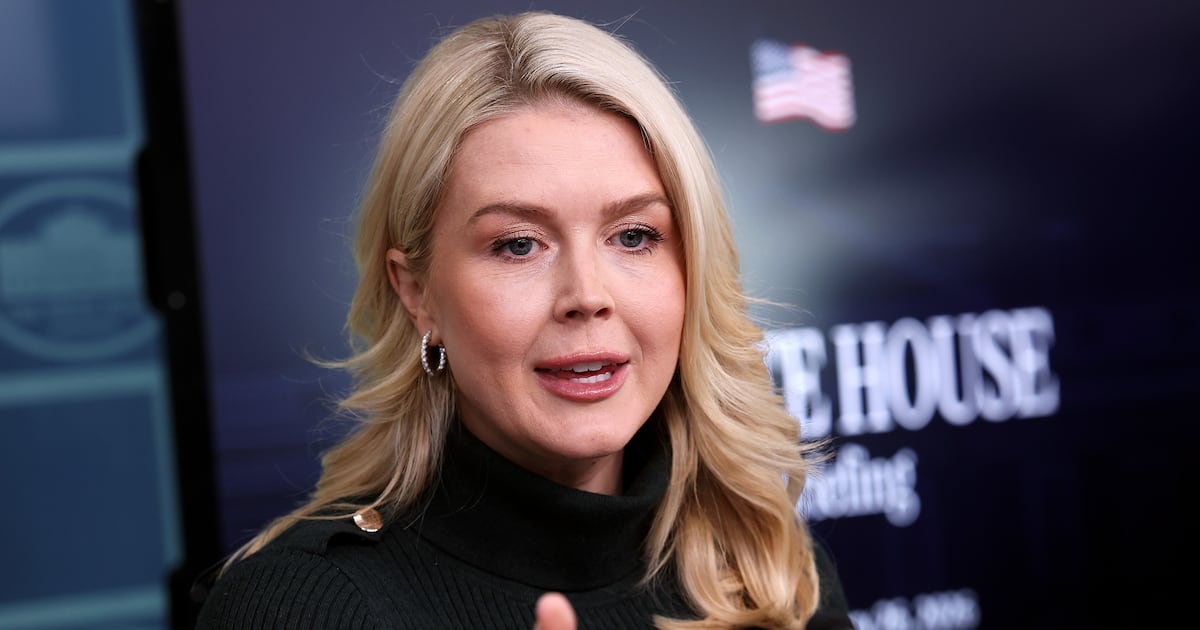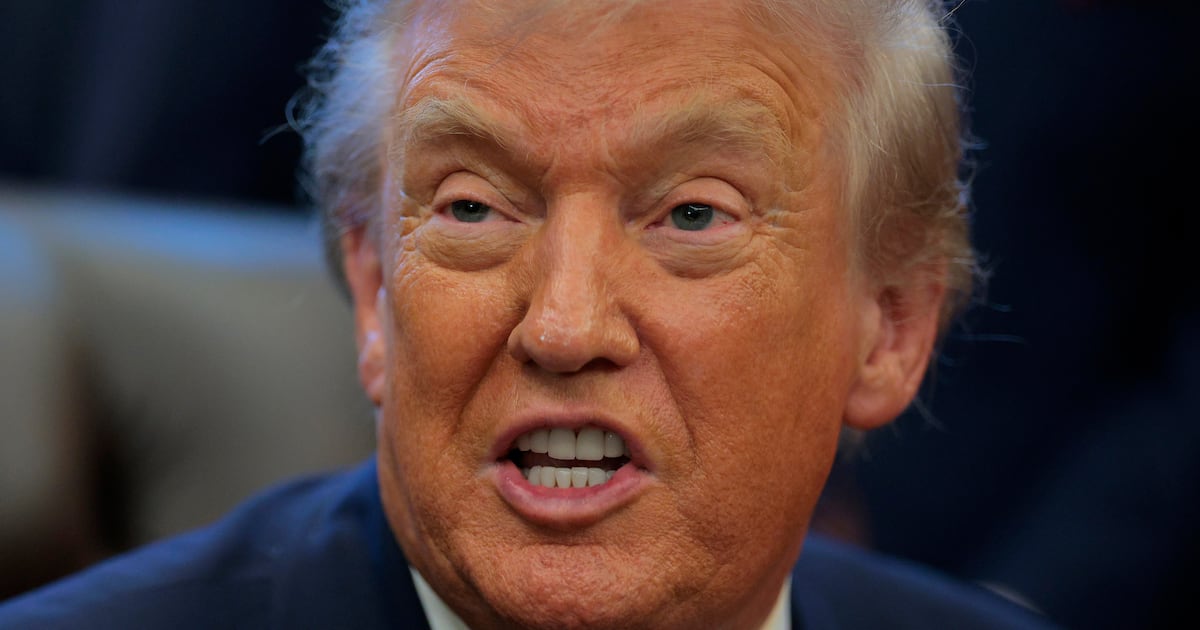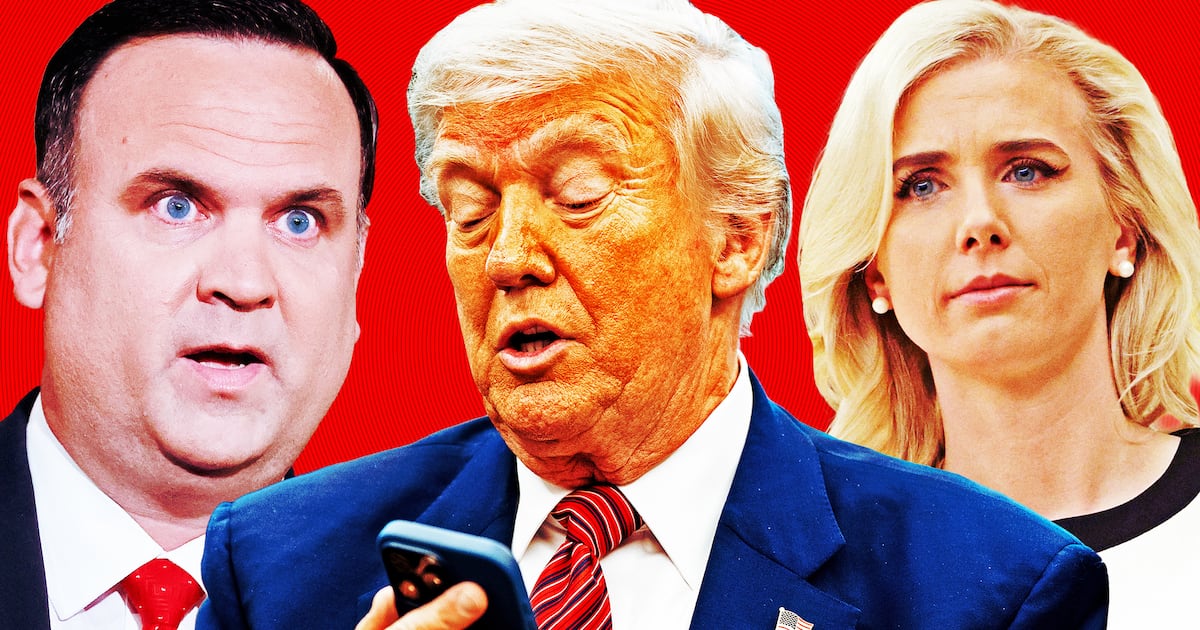Journalist Steven Brill’s new book about how the country got into some of its biggest and most vexing problems in the last half-century and how we’re on the verge of fixing many of them is surprisingly optimistic in a very 2018, through-the-looking-glass sort of way.
We do have big things to fix—healthcare, financial regulation, hyper-partisanship, crumbling infrastructure. But none of this—neither the causes nor the solutions—has anything to do with Donald Trump. Well, almost none of it.
“The only way he plays into the book,” Brill said in the single mention of Trump in a 45-minute interview, “is that the 50-year story explains how 46 percent of the electorate was frustrated enough and scattered the right way in the right Electoral College states to elect him.”
What underlies the book, Tailspin: The People and Forces Behind America’s Fifty-Year Fall—and Those Fighting to Reverse It, and Brill’s interview here with The Daily Beast, is the intoxicating idea that the Trump years will be a long pause at worst and a catalyst at best toward a more perfect union to come.
The villains of Tailspin are the titans of industry and government who began their rise to prominence in the ’60s and then changed the rules. “The most talented, driven Americans chased the American dream—and won it for themselves,” Brill writes. “Then, in a way unprecedented in history, they were able to consolidate their winnings, outsmart and co-opt the government that might have reined them in, and pull up the ladder so more could not share in their success or challenge their primacy.”
Brill wants to change the playing field in such a way that being born upper-middle-class isn’t a prerequisite for becoming upper-middle-class.
One interesting stat in the book is that middle-class incomes grew faster than upper-class incomes every year from 1929 to 1970, but then upper-class incomes have grown faster nearly every year since. What changed in 1970?
The main reason was the decline of private-sector unions. If you think about the postwar era, the troops came back from World War II, factories could make consumer goods instead of airplanes and rifles, and unions rose from then until the early ’60s. You had the G.I. Bill, you had rising wages, and that was the American dream.
If you overlay the decline in unions over the last 50 years with the decline in the types of jobs that have generally been covered by unions—durable goods, textiles, etc.—don’t you get to the same place at some point? Wouldn’t those jobs have gone to developing countries anyway?
Not necessarily. The union movement that has continued to flourish is public-employee unions.
You can’t outsource those state and local jobs to China.
You can’t outsource those jobs, but the point is that the people in those unions get to vote for their boss. The major public-employee unions are in major urban areas, and those unions are a key factor for people to elected to office in those areas.
I just wonder if everything you write in the book about unions is true but that none of it matters because we’re really just talking about how fast those jobs moved overseas.
The primary reason manufacturing jobs have been going away is market forces and automation. The decline of the coal-mining industry, for example, has had nothing to do with jobs getting shipped overseas. It has to do with coal having a lot of competition and new technology that requires far fewer miners per ton of coal. Another big factor is financial engineering like franchising. It’s difficult for 500,000 McDonald’s employees to organize when the employees are scattered across a lot of different franchisees.
How much progress have American companies made in developing higher-skill, higher-wage manufacturing jobs that are hard to outsource?
Not much. There isn’t a net uptick in manufacturing jobs in the last year or two, and most economists would say that the employment decline in manufacturing is continuing. Joe Stiglitz, the economist, says in the book that if you add a billion people to the worldwide workforce, wages go down. Globalization has put more than a billion more people into the workforce pool than companies can hire. You have to retrain people, and I spend a lot of time in the book talking about the appalling failure in the United States to have job-training programs vs. every other developed country.
The underlying idea of the book is that there was something like a meritocracy in the ’60s where lower-middle-class kids could become upper-middle-class adults, and then they changed the system to keep it. Is the Silicon Valley story of the last 20 years an argument against that?
To get good jobs in Silicon Valley, you need to come out of a good school with an understanding of engineering. There’s a section in the book about a nonprofit in Queens that’s taking people from all kinds of backgrounds and teaching them to code. They’re coming into the program with an average income of $18,000 a year, and they’re getting placed into jobs making $85,000 a year 11 months later. It can be done. None of these problems are insoluble.
Are minorities statistically likelier today to rise from working class to middle class than they were in the ’70s?
Yes. That doesn’t really address the issue that if you start out poor today you’re more likely than at most prior times in our history to stay poor. And if you start out lower-middle class, you’re likelier to stay lower-middle class or even to fall into the poor category than in the ’60s or ’70s. That’s true of minorities and non-minorities.
There’s a section in the book about the success that Amherst College and Baruch College have had admitting poor students. Are there enough decision-makers across the university system who have an incentive to admit more poor students for that to be a force for change?
You can embarrass them into doing it. I’m on a personal crusade to embarrass my alma mater [Yale] into doing it. It’s inexcusable. It’s as simple as more aggressively marketing to those students. Yale and Harvard are basically free if your family income is less than $75,000 a year, but a valedictorian at a high school in South Dakota has no idea about that. Amherst, Baruch, and Princeton too are making an effort to go to those students.
The big increase in the number of lawyers in the ’70s and ’80s is interesting. Where do you see that increase having the biggest impact?
It’s part of a larger conclusion I came to that in retrospect seems kind of obvious. We went from a manufacturing economy to a knowledge economy, and those new lawyers and business school grads helped build moats—protection—for their clients. Thousands of lawyers working as lobbyists are going through Dodd-Frank looking for ways to water it down, looking for ways to delay OSHA regulations, figuring out stock-buybacks and derivatives.
You talk a lot about moats in the book. You have a chapter about it. That’s a term that I’ve heard mostly applied to the tech industry. Does that come from tech?
It does. One of the companies I started—the Clear Registered Traveler program, now the PreCheck program—was a tech company. I remember one of the venture capital investors saying to me: “What kind of a moat do you have? You have to have a moat.” When Warren Buffett talks about moats, he’s talking about making a product that’s so good and continuing to stay so good that it has protection from competition. That venture capital guy said I should hire a lobbyist to try and restrict any other company from competing with us. That was his idea of a moat.
You need moats to attract investment, though. Without the ability to entrench your advantages to some degree, you can’t grow a business.
It depends on the kind of moat. Companies today attract capital for inventions or processes that are intended to disrupt the incumbents. They’re not attracting capital because they have a protected position like the pharmaceutical companies who successfully lobby Congress from taking steps to reduce drug prices.
You usher a lot of evidence toward the idea that the financialization of the economy has benefited the top 1 percent to the detriment of just about everybody else. If the Great Recession didn’t align the stars to make big, fundamental fixes, what else could ever inspire the political will to do it?
In all the different areas that I wrote about—job training, campaign-finance reform, Wall Street—I went to people who had started organizations to fight those problems. At first, I thought they were naive. But we’re going to reach a level of frustration and disgust, and people are going to realize that Donald Trump’s strategy of pitting the middle class against the poor didn’t work for either of them. I think they’re going to turn to political leaders who have a talent like Robert Kennedy had to convince the middle class and the poor that they have a lot in common. That’s when I think things will change.
I think that could actually happen pretty quickly. You can’t keep telling people to pay more and more out of pocket for inadequate healthcare. You can’t keep telling families that the subways and buses are just going to keep breaking down. Sooner or later, people who see that the country doesn’t work will get behind leaders who can actually make it work.
As much as the Obama administration accomplished in its first two years, the lesson of that period may be that you shouldn’t compromise when Congress and the White House are aligned. You can’t give away one-third of the Recovery Act as tax cuts intended to sway Republicans when none of them actually vote for the Recovery Act.
The lesson of healthcare—which I wrote a book about—was that the system is still broken even when you do control Congress and the White House. Obamacare is a more conservative version of Richard Nixon’s plan. Obamacare is the Republican plan. That failure of any Republicans to vote for it was a complete reversal of bipartisan votes on the Civil Rights Act and the Environmental Protection Act.
Obamacare was literally a Republican plan. It preserved the private healthcare system and gave people a subsidy to buy private health insurance to in turn pay the same exorbitant, rip-off prices that everybody else was paying. That’s why every single healthcare industry group and lobby supported Obamacare. The idea that they all supported it and their Republican benefactors did not was stunning to me. It was a clear demonstration that the Republicans were not going to give a Democratic president a win no matter what. The reason Republicans still have not come up with an alternative is that Obamacare was the alternative.
Congressional Republicans spent eight years defining themselves by opposition to whatever President Obama wanted. Do Republicans lack a policy agenda today because they’ve spent the last decade failing to develop much of a public-policy apparatus for developing one?
I think that’s true. If you ask Republicans in Congress, they’ll say they had Paul Ryan’s agenda. I may be the only person in America who’s read every page of Paul Ryan’s budget proposals and his healthcare proposals, and they’re bogus. They aren’t plans at all. None of it makes any sense.
Gerrymandering strikes me as a problem we may actually fix and that redistricting Ohio, Michigan, Pennsylvania, Wisconsin, and Virginia in ways that creates more competitive districts could have a radical impact on Congress.
Oh, it would. The combination of gerrymandering and modern media have completely separated the country. Gerrymandered congressional districts and state house districts have pushed everything to the left and to the right with very little in the middle. With fairer districts, you’ll have a government that works—a Republican government that works or a Democratic government that works. Congress won’t be appealing to the base back home if the base becomes the middle.
What solutions to big problems that you found in your reporting strike you as particularly likely to come to fruition in the next several years?
In several areas, I think things will get so bad that they get good. Infrastructure is a good example of that. People have been saying since the ’70s that we have to keep our highways repaired and fix the subways, but politicians don’t go to ribbon-cuttings for repaired subway tunnels. In 1971, the Port Authority of New York and New Jersey announced that it would build a new train tunnel under the Hudson River because the current tunnel, which was built in 1902, would be in danger of a total collapse by the ’80s. When that tunnel collapses, guess what? The Port Authority will build a new one and will build it really fast. If we had four bridge collapses in a week instead of over 16 months, it would be seen as an emergency. Politicians would hold hearings, and they would allocate the money.
Our democracy, as bad as it is, can actually function when something is perceived as an emergency, and I think infrastructure will be perceived as an emergency pretty soon. Healthcare is increasingly unaffordable for people using Obamacare and for middle-class people who get health insurance through their employers, and they are increasingly being asked to pay higher deductibles and copays and get less for it. Some politician or politicians will come along and suggest a kind of healthcare reform that could really work, and people will latch onto it.
You conclude in the book that change would come in the form of the unprotected demanding responsibility and accountability from the protected. That means Democrats, right? I don’t see a lot of incentives for Republicans to do that.
They top 1 percent want less government so that their taxes will go down. They want antitrust protection to go down. They want job-safety enforcement to go down. They don’t use mass transit, so they don’t care about mass transit. They don’t have to worry about discrimination because they’re usually the ones doing the discriminating. They live in gated communities with private security. Eighty percent of housing assistance in this country goes to the upper-middle class and wealthy in the form of the mortgage interest deduction.
The real split in the country is between the protected and the unprotected, and it’s not always a left-right issue. Some of the most protected people in the country are incompetent teachers who are ruining our public schools but are protected by ridiculous teachers’ union contracts. As a general matter I think it’s right that reform will come from Democrats, but I’m trying to get across the idea that the protected are people who do not need the government and do not care about the government.






